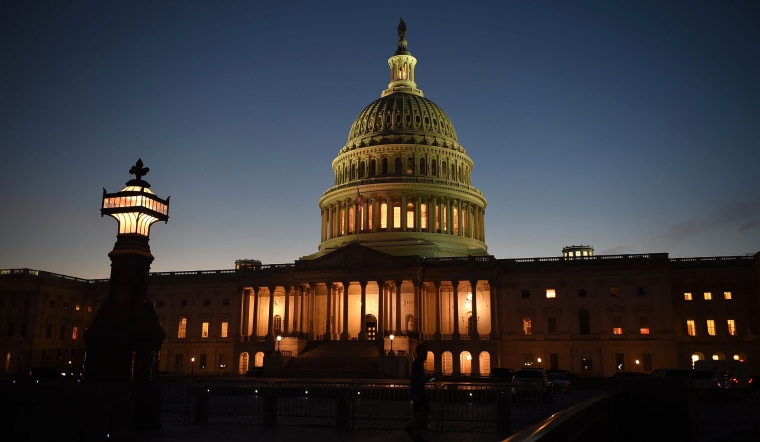Over the summer, a disgruntled lawyer showed up a U.S. District Court Judge Esther Salas' New Jersey home with a gun. He murdered the judge's 20-year-old son and wounded her husband, prompting Democratic Sens. Bob Menendez and Cory Booker to unveil legislation to help keep judges' personal information private.
The legislation was named after the slain young man: The Daniel Anderl Judicial Security and Privacy Act.
The hope was that the uncontroversial measure could pass before the end of the year without any real opposition. As Politico reported, that's not quite how developments unfolded on Capitol Hill.
Legislation to give federal judges the power to take down internet and social media posts containing personal information about them hit a stumbling block Wednesday, after a Republican senator insisted the measure be broadened to give similar protection to details about members of Congress. Sen. Rand Paul of Kentucky, who was the victim of a serious attack at his home by a neighbor in 2017, said lawmakers also deserve to have information about their homes and family members shrouded from public view.
"I really think that this is important that we protect addresses for our judges, but it's also important that we do this for our elected officials," Paul said on the Senate floor. "The Capitol Hill police are not stationed at our homes where our families live while we serve in Washington. ... There's no reason why we should do this only for one branch of government."
Proponents of The Daniel Anderl Judicial Security and Privacy Act don't necessarily have a problem with extending protections, but they've said this could be addressed in a separate bill at another time.
Evidently, that's not good enough, which means the bill -- which Menendez thought could pass with unanimous support -- apparently will fail, leaving supporters to wait until next year to try again.
Politico's report described the way in which the measure, if approved, would work: "The current version of the legislation being advanced by Menendez and Booker doesn't seek to restrict online posting about religious and civic groups a judge may belong to, but does cover most of the other data the judiciary asked to be able to restrict" -- a list that includes things like credit card and vehicle license plate numbers.
Information that "is relevant to and displayed as part of a news story, commentary, editorial, or other speech on a matter of public concern" would be exempt from disclosure restrictions.
It looks like something to keep an eye on in the next Congress.

